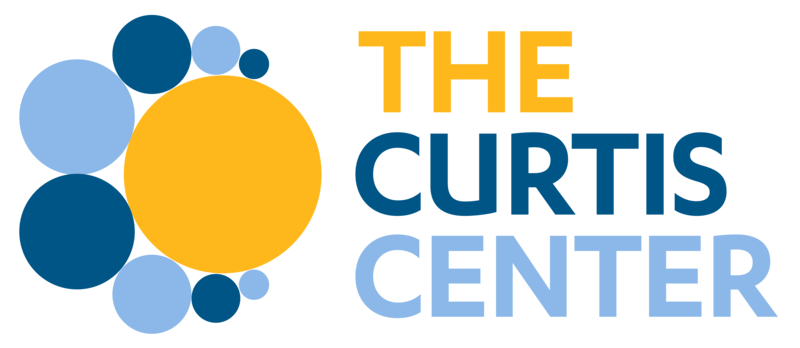The Curtis Center creates, disseminates, and applies knowledge of K-12 mathematics, instruction, and assessment with the goal of engaging all students in rigorous mathematical activity that equally emphasizes conceptual understanding, fluency and culturally responsive application.
What We Do
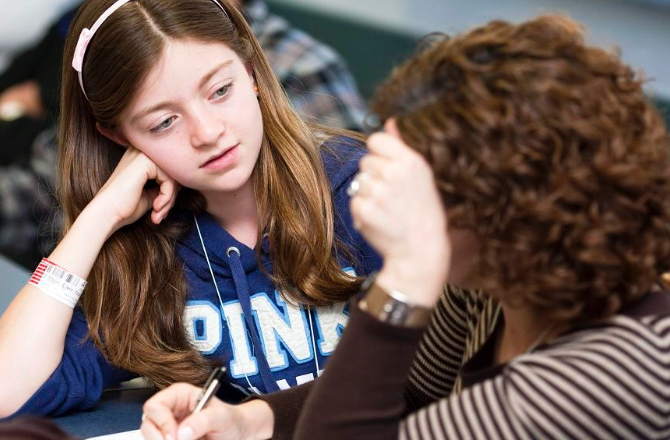
- Develop the mathematical and pedagogical content knowledge of undergraduates preparing for careers in K-12 mathematics education
- Provide opportunities for K-12 mathematics teachers to grow their mathematical knowledge and apply it to the work of teaching
- Develop curriculum and national assessments designed to engage students in authentic mathematical justification and application
- Help districts develop equitable and rigorous mathematics course pathways and syllabi
What We Believe
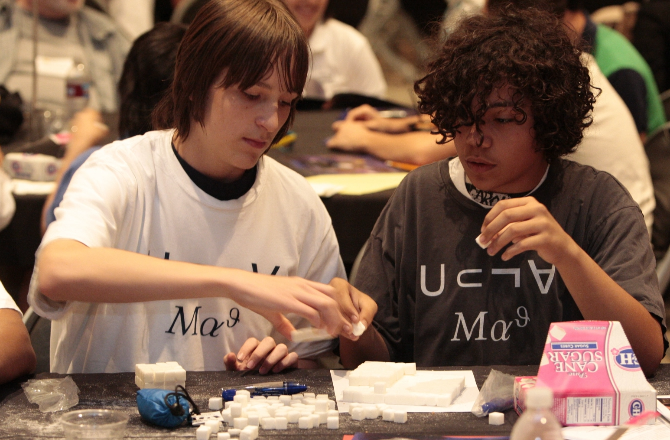
- all students have the capacity to engage in rigorous mathematical activity
- students should be equally engaged in pure and applied mathematics – in mathematical justification and authentic, current applications
- efforts to improve the U.S. student mathematics experience requires authentic collaboration between K-12 and university mathematics faculty
Who We Are
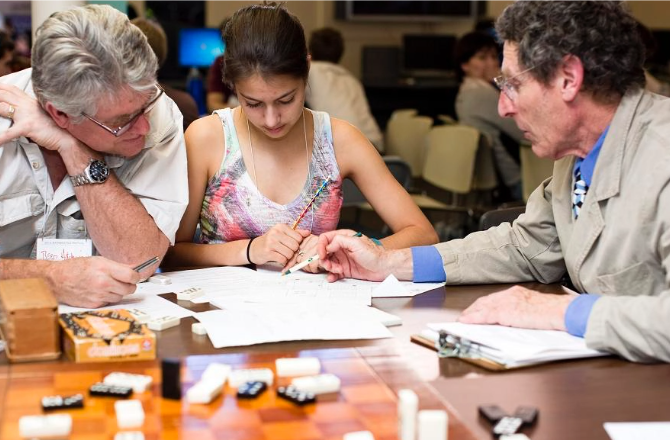
The Curtis Center is one of a few K-12 mathematics groups housed in a Tier 1 mathematics research department.
Our Directors and Specialists are academic appointees of the UCLA Mathematics Department.
Team Members

Heather Dallas

Heather Dallas
Executive Director
Heather Dallas has over 30 years of mathematics teaching experience, including 12 in local public schools and more than 20 in the Mathematics Department at the University of California at Los Angeles (UCLA). As a public school teacher, Heather co-developed a specialized Algebra course for students previously excluded from Algebra and helped significantly increase student access to and success in AP BC Calculus. During this time, she taught and developed mathematics curriculum for the professional development efforts of both the California Math Project and the UCLA Mathematics Department. She served as the UCLA Mathematics Department Visiting High School Teacher in 2000-2001, after which the Department invited her to continue teaching as a lecturer. In this role, she has trained over 20 cohorts of senior mathematics majors to be secondary mathematics teachers
In 2007, the UCLA Mathematics Department invited her to serve as Executive Director of their newly established Curtis Center for Mathematics and Teaching. In this role, she has led numerous projects with districts and industry partners aimed at improving the quality of mathematics activity in K-12 schools. She served as PI on two California Math Science Partnership grants and directed four Smarter Balanced Mathematics Task Development Projects. In 2020, she was awarded $1.1M by the Bill and Melinda Gates Foundation to develop and implement an Applied Mathematics Mentorship Program to increase student success in mathematics in three South Los Angeles schools.
Heather served on the 2010 California Academic Content Standards Committee, the 2012 California Framework Committee, the 2013 United States Department of Education’s Race to the Top Technical Review, and the Oregon Technical Advisory Committee. She is a Nationally Board Certified Teacher and winner of the UCLA Mathematics Department’s 2023 Sorgenfrey Distinguished Teaching Award which honors faculty for excellence in teaching. She is the daughter and grandaughter of teachers, with her father being the first LAUSD mathematics teacher to incorporate computers into the mathematics classroom.
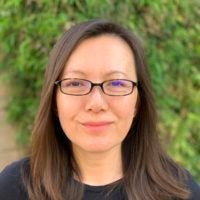
Helen Chan

Helen Chan
Director of K-8 Mathematics
Director Chan has over three decades of experience in K-16 mathematics education, including more than a decade with the UCLA Mathematics Department. She is an experienced practitioner in Southeast and Southwest Los Angeles schools and has taught mathematics courses for future elementary and middle school teachers and courses for current elementary school teachers within the UCLA Mathematics Department. She is a published National Council of Teachers of Mathematics author and has authored numerous mathematics lessons and courses for current teachers. She is the author of Smarter Balanced Performance Tasks and Evidenced Based Selected Response Tasks for use on summative statewide assessments across more than 34 U.S. States. Chan is also a 2019 Johns Hopkins Center for Talented Youth Sarah D. Barder Fellow.
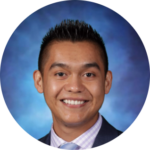
Isai Lopez

Isai Lopez
Director of Secondary Mathematics
Isai Lopez is an experienced practitioner in East Los Angeles schools and currently provides mathematical and pedagogical training to mathematics teachers across California. Isai is an author, editor, trainer, and instructional coach for AMMP and has authored Smarter Balanced Performance Evidenced Based Selected Response tasks for use on summative statewide mathematics assessments across more than 14 U.S. States. He regularly gives invited talks in the UCLA Mathematics Department’s Mathematics 73 and 105 courses and serves as an advisor for Math for LA students completing their pedagogical competence assessment for their California Secondary Teaching Credential in Mathematics. Additionally, Isai provides national and statewide leadership in mathematics education, giving talks at statewide and national conferences.
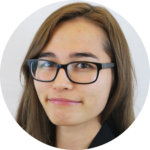
Kristina Petruff

Kristina Petruff
Program and Fund Manager
Kristina Petruff holds a degree in economics and has several years of experience in administration in higher education. As The Curtis Center Program and Fund Manager, she identifies opportunities for improvement and growth by tracking and managing data for external and internal audits, manages all financial accounts, and oversees the programmatic and business operations of the Center.

Saranna Lay

Saranna Lay
Program Assistant
Saranna is a second-year Statistics and Data Science major passionate about public health and healthcare. At The Curtis Center, she supports the team by completing projects that allow for increased ease of access and a more efficient workflow. This includes cleaning and maintaining accurate electronic records, creating and distributing financial reports, and preparing materials for professional development sessions.
Advisory Board
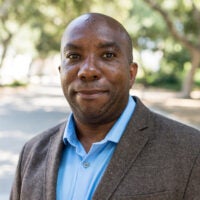
Edray Goins

Edray Goins
Pomona College Mathematics and Statistics Professor
Edray Herber Goins grew up in South Los Angeles, California. The product of the Los Angeles Unified (LAUSD) public school system, He attended the California Institute of Technology, where he majored in mathematics and physics, and earned his doctorate in mathematics from Stanford University.
He has held positions at the world’s premiere research institutions, including the National Security Agency in Ft. Meade, Maryland; the Mathematical Sciences Research Institute in Berkeley, California; the Institute for Advanced Study in Princeton, New Jersey; the Max Planck Institute for Mathematics in Bonn, Germany; Harvard University in Cambridge, Massachusetts; and the California Institute of Technology in Pasadena, California. In January 2004 he was featured in Black Issues in Higher Education as one of the “2004 Emerging Scholars of the Year.” From 2004-2018, Dr. Goins was a professor of mathematics at Purdue University in West Lafayette, Indiana.
Prof. Goins spends most of his summers engaging underrepresented students in research in the mathematical sciences. He has taught mathematics and physics in the Freshman Summer Institute (FSI) at Caltech; and led research seminars in number theory in the Summer Undergraduate Mathematical Sciences Research Institute (SUMSRI) at Miami University as well as the Mathematical Sciences Research Institute Undergraduate Program (MSRI-UP) in Berkeley, California. He currently runs an NSF-funded Research Experience for Undergraduates (REU) titled “Pomona Research in Mathematics Experience (PRiME).” Prof. Goins is interested in (1) Selmer groups for elliptic curves using class groups of number fields, (2) Belyi maps and Dessins d’Enfants, (3) origami as branched covers of elliptic curves, and (4) Galois groups, monodromy groups, and etale fundamental groups. He maintains his own blog about Dessins d’Enfants.
He is also the lead for updating the Mathematicians of the African Diaspora database (also known as the MAD Pages), a resource dedicated to promoting and highlighting the contributions of members of the African diaspora to mathematics, especially contributions to current mathematical research.
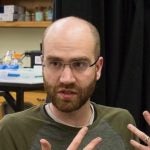
Marcus Roper

Marcus Roper
UCLA Mathematics Professor
Professor Marcus Roper received his Ph. D. in mathematics from Harvard University and joined the UCLA Mathematics Department in 2011. In addition to teaching mathematics, he conducts research in mathematical problems coming from physics and biology. He is particularly interested in fungal mycelia, the microvascular system and design and optimization of inertial microfluidic devices.
Marcus has collaborated with The Curtis Center by editing mathematics and physical science lessons written by teachers in the Center’s California Math Science Partnership Grant with Glendale Unified, editing K-12 lessons written for use with Magformers, a magnetic polygons used as concrete models in instruction, as well as speaking to teachers about current mathematical research. In addition, Marcus supports the development of future teachers by serving as the advisor to undergraduate math majors studying to be future high school teachers as they engage in summer research in applied mathematics.
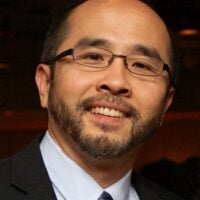
Francis Su

Francis Su
Harvey Mudd College Mathematics Professor
Francis Edward Su is the Benediktsson-Karwa Professor of Mathematics at Harvey Mudd College and a former president of the Mathematical Association of America. He received his Ph.D. from Harvard University. His research is in geometric combinatorics and applications to the social sciences and he has co-authored numerous papers with undergraduates. He also has a passion for teaching and popularizing mathematics. From the Mathematical Association of America, he received the 2013 Haimo Award for distinguished teaching and the 2018 Halmos-Ford Award for his writing. His work has been featured in Quanta Magazine, Wired, and The New York Times. His book Mathematics for Human Flourishing (Yale University Press, 2020) won the 2021 Euler Book Prize. It is an inclusive vision of what math is, who it’s for, and why anyone should learn it.
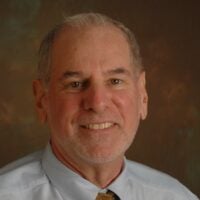
Uri Treisman

Uri Treisman
University of Texas Mathematics Professor
Uri Treisman is University Distinguished Teaching Professor, professor of mathematics, and professor of public affairs at The University of Texas at Austin. In 1987, he founded the Charles A. Dana Center—a research unit of the University of Texas at Austin College of Natural Sciences—and served as its executive director through June 1, 2023. He is a proud alumnus of UCLA’s mathematics department where he earned his baccalaureate degree in 1970, earning the department’s Sherwood Prize for outstanding achievement and exceptional performance in mathematics at the undergraduate level.
Uri is best known as a designer of educational programs that promote high achievement among students from groups historically underrepresented in mathematics-based professions. For this work, he received a MacArthur Fellowship (1992–1997). For his work in supporting K–12 mathematics education leaders, Uri received the Ross Taylor/Glenn Gilbert National Leadership Award from the National Council of Supervisors of Mathematics (2016). For his work in strengthening undergraduate math education, he received the Yueh-Gin Gung and Dr. Charles Y. Hu Award for Distinguished Service to Mathematics from Mathematical Association of America (2019). For his innovations in education policy, he received the 2020 James Bryant Conant Award from the Education Commission of the States.
Uri served as a Distinguished Senior Fellow at the Education Commission of the States from 2013–2021. He is a fellow of the American Association for the Advancement of Science and of the International Society for Design and Development in Education. He was named the Harvard Foundation’s 2006 Scientist of the Year for his leadership work in American mathematics education. Uri continues his work on equity-minded reform of mathematics education at scale. Uri is proud to serve as a member of The Curtis Center’s Advisory Board.
To view an outstanding keynote address by Uri Treisman @ NCTM click here.
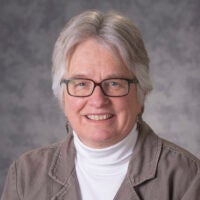
Marion Usselman

Marion Usselman
Center for Education Integrating Science, Mathematics and Computing (CEISMC), Georgia Tech
Marion has been at Georgia Tech since 1996 and serves as the CEISMC Associate Director for Development and Educational Innovation and as a Principal Research Scientist. She originated in California and received a B.A. in Physics/Biophysics from the University of California, San Diego. After earning a Ph.D. in Biophysics from the Johns Hopkins University, she chose to leave bench science and pursue interests in promoting science education at all levels, first at the University of North Carolina, Charlotte, then at Georgia Tech. Marion relishes developing partnerships with interested educators and academics in all fields to help promote in K-12 schools the same curiosity and love of learning inherent at universities.
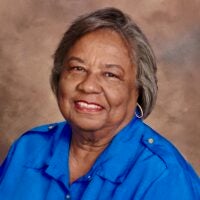
Barbara Wells

Barbara Wells
Retired Mathematics Educator
Barbara Griggs Wells received a B.S. in mathematics from Howard University and spent 30 years teaching mathematics in the District of Columbia and California public schools—evenly divided between junior and senior high school settings. She received a Ph.D. in education from UCLA with a specialty in administration, curriculum and teaching studies emphasizing mathematics. During this time she also served as a member of the mathematics content group for the TIMMS video study. She was a member of the clinical faculty of the Graduate School of Education and Information Studies at UCLA where she coordinated the preservice teacher education of secondary mathematics teachers and provided professional development that emphasized the use of writing to learn mathematics. Her active participation in the Mathematics Diagnostic Testing Project led to her service as the UCLA site director and California school liaison coordinator as a mathematics department faculty member.
Our History
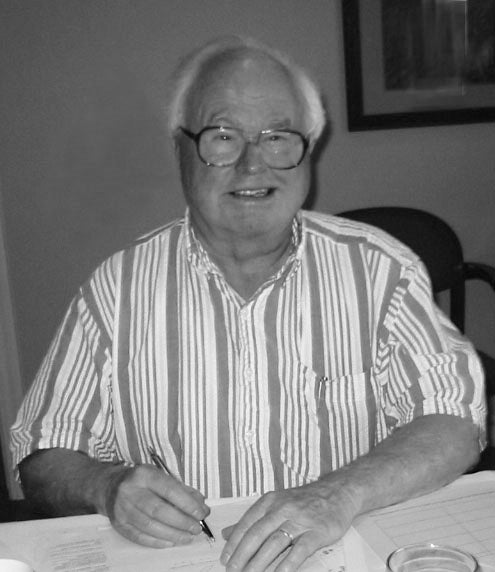
Professor Emeritus Phil Curtis
For decades, the UCLA Mathematics Department has been involved in the entire spectrum of mathematical activity, from K-12 to university to career. The department’s involvement at the pre-collegiate level was significantly shaped by Professor Emeritus Phil Curtis over a fifty-year period. While producing pioneering and internationally recognized work in Banach Algebras, Professor Curtis served twice as Department Chair and advocated for departmental involvement in K-12 mathematics activity. Over his many years of service, he worked to establish six programs supporting K-12 mathematics activity including the statewide UC/CSU California Mathematics Diagnostic Testing Project, the UCLA Visiting High School Teacher Program and the UCLA Joint Mathematics Education Program, the UCLA Mathematics Project, the UCLA Math Content Program for Teachers, and a program which prepared K-12 students for competitive mathematics exams. To formalize these efforts, on March 15th, 2008, Department Chair Christoph Theile and mathematics professor Theodore Gamelin, inaugurated The Philip C. Curtis Jr. Center for Mathematics and Teaching within the UCLA Department of Mathematics.
